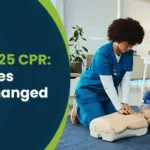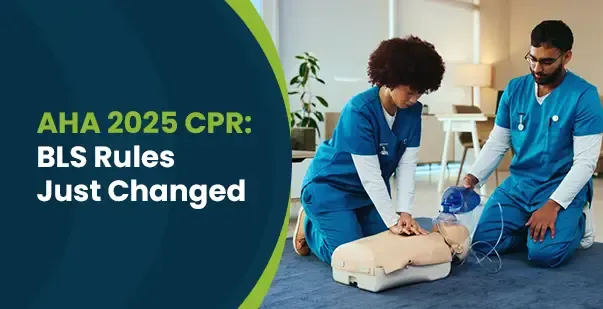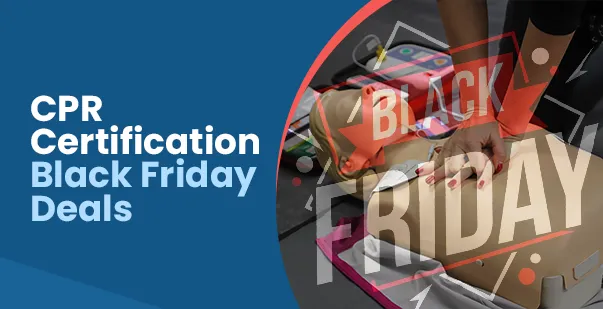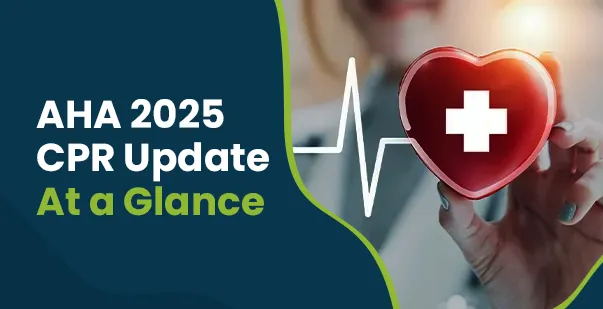Healthcare is a field where you need to fulfill education requirements before getting professional certifications. 60% of healthcare employers prioritize certified professionals in their hiring processes. Healthcare certifications show that you are well qualified to perform the required duties. Once you complete the requirements, you can choose a certification program of your choice.
So plan well and research the type of healthcare careers you want before you start pursuing your career path. Keep reading to explore the useful healthcare certifications to consider.
Why are Healthcare Certifications Crucial?
According to the U.S. Bureau of Labor Statistics (BLS), workers with certifications had an employment rate of 87.3%. This is higher than the 68.4% employment rate for those without any certification or license. Learn top reasons why healthcare certifications are crucial:
- Ensures updated knowledge: Healthcare certifications keep professionals informed about the latest practices and advancements in the medical industry. This is crucial because healthcare constantly evolves and new techniques emerge. Certification will enable workers to follow current guidelines and improve patient safety.
- Enhance patient safety: Certifications in healthcare ensure that workers meet high standards of practice. This will help them in handling the medical situations safely. With proper training, it reduces the chances of errors and improves the patient’s well-being.
- Boosts professional credibility: Certifications also prove that you are qualified and competent in your field. It builds trust and gives you an added advantage. This can lead to better job opportunities.
- Increases job opportunities: Certified professionals have a competitive advantage. Many healthcare employers require certified workers. The right certifications increase your chances to advance in your career.
- Meets the regulatory requirements: Healthcare roles need specific certifications. Without these certifications, professionals are unable to practice legally. Certification ensures that healthcare workers follow legal standards.
What are the 12 Useful Healthcare Certifications to Consider?
Certifications ensure that professionals are well-trained. It adds skills and maintains credibility. Here are 12 useful healthcare certifications to consider.
Basic life support certification:
BLS, or basic life support certification, is crucial for healthcare professionals who need to provide emergency care. It teaches basic techniques such as cardiopulmonary resuscitation. You must renew BLS certification every two years and keep skills updated.
Certified nursing assistant:
A CNA certification helps individuals to assist nurses with basic patient care, including bathing, feeding, and monitoring vital signs. As they work very closely with patients, they help with their daily activities. The certification is best if you want to get into the nursing field. It offers foundational experience in patient care and serves as a stepping stone for advanced roles in nurse care.
Certified medical assistant:
Certified medical assistants offer clinical and administrative tasks in healthcare. They take patient histories and give medications. To get the CMA certification, participants must pass an examination and complete a nationally accepted program. It helps healthcare workers manage daily tasks while meeting patient care standards.
Phlebotomy technician certification:
Phlebotomy technicians draw blood from patients for testing, research, or transfusion. The certification teaches proper techniques for collecting blood samples and handling needles. It is a short program and is highly demanding among individuals in this field. Get certified to work in hospitals, blood donation centers, and laboratories. This role is crucial for diagnosis and helps gather information about patients.
Certified pharmacy technician:
Certified pharmacy technicians handle administrative tasks. They manage inventory and help customers resolve doubts related to medicines. The certification includes coursework and a quiz.
Emergency medical technician (EMT):
EMT certification is ideal for those interested in emergency medical services. This includes individuals working in ambulances. EMTs offer basic medical care during medical emergencies, including heart attacks. EMTs stabilize patients before they reach the hospitals. Certification involves completing a training program and passing written and practical exams.
Certified professional coder (CPC)
Choose CPC certification if you are interested in medical coding and billing. Medical coders translate patient records into codes that are used for billing and insurance purposes. The certification covers healthcare regulations and coding systems. Certified coders work in clinics and even in insurance companies. This role is a must if you manage finance in healthcare services.
Certified health education specialist (CHES)
CHES certification focuses on public health education and teaches professionals ways to promote health and wellness in communities. These develop educational programs and distribute health information. This certification is essential in preventing disease through education.
Advanced cardiovascular life support certification:
ACLS teaches more advanced techniques than BLS, which include managing heart attacks and other critical scenarios such as stroke. ACLS-certified professionals work in places such as emergency departments and intensive care units. You need to study the course module and pass the test to ensure that healthcare providers course can handle life-threatening heart conditions well.
Also read: What is ACLS Certification and Why It’s Important ?
Pediatric advanced life support certification:
PALS certification helps manage emergencies that involve infants and child resuscitation, airway management, and recognizing pediatric distress and their signs. It focuses on teamwork in emergency situations, advanced assessment techniques, effective communication strategies, and hands-on training. It provides the skills necessary to save young lives in emergencies.
Certified respiratory therapist:
This certification is for professionals who help patients with breathing or lung-related issues. These professionals work with doctors and offer treatment, including oxygen therapy and ventilator management. You can get this certification after taking a specialized degree and passing an examination. CRTs’ work in respiratory care clinics and hospitals.
Certified case manager:
Case managers help patients navigate the healthcare system. This ensures they receive care and resources effectively. CCM certification equips professionals with skills necessary to take care of patients and manage healthcare plans. Certified case managers work with hospitals, insurance companies, and rehabilitation centers. They ensure that patients receive care without spending unnecessarily.
These certifications offer several opportunities, whether you are aiming to enter in the field of healthcare or advance in your current role. Each certification trains you with specialized skills valuable in several healthcare settings.
Read More: CPR Certification for Dentists in Pennsylvania
How Do You Choose the Right Certification For Your Career Path?
Choosing the right healthcare certification for your career path depends on your role, long-term goals, and demands of your healthcare field. It is essential to know where you are in your career. Here are important factors to consider while selecting the best certification for your professional journey:
- Identify your career goals: Determine your long-term goals, such as moving into a specialized field or advancing to a higher position. Different certifications open doors to various career paths. So choose a specific one that meets your professional aspirations. If you are aiming to work in emergency care, certifications such as EMT or ACLS are more relevant.
- Consider industry demand: Research which certifications are in high demand within your desired field. Some certifications, such as Certified Nurse Anaesthetist (CRNA), NCLEX-RN, certified nursing assistant (CNA) offer higher pay, while others offer niche expertise. So ensure the certification you pursue offers an added advantage or helps you stay competitive.
- Check time and cost commitment: Certifications need periodic renewal to stay valid. This might involve taking additional healthcare courses or exams. Look into the recertification requirements for your certification to understand the long-term commitment. This ensures you maintain your credentials and stay updated and compliant.
Advance your career with the right certification
Healthcare certifications are essential for professionals who want to grow their expertise and improve patient care. Each of these certifications in the healthcare field offers unique benefits and career goals. So choose the right certification to take your career to new heights. Take the leap and advance in your career by selecting a certification. Start your journey today.









